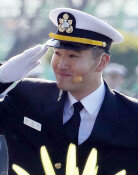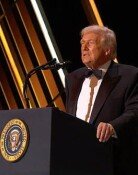[ASEAN-Korea Summit]CEO Summit Discussions Focus in on Change, Challenge and Collaboration
[ASEAN-Korea Summit]CEO Summit Discussions Focus in on Change, Challenge and Collaboration
Posted June. 02, 2009 07:36,
The keynote address at the opening ceremony of the ASEAN-Korea CEO summit on May 31 was delivered by a person appro-priate: a former CEO of Hyundai Engineering & Construction.
I too was a businessman, and I worked in the ASEAN region when I was younger, said South Korean President Lee Myung-bak, remin-iscing about construction projects in Thailand. It is a pleasure and a comfort to see you all here today.
Indeed, in the tense aftermath of the North Korean nuclear test and the suicide of ex-President Roh Moo-hyun, organizers may have been relieved that there was such a good turnout-some 700 business leaders from ASEAN and Korea had registered for the two-day meeting themed, Change, Challenge and Collaboration for Asias Prosperity.
Security was tight. A long pro-cession of large cars, and large men in suits, was lined up outside Jeju International Airport to whisk VIPs safely to the venue in the Jungmun Resort Complex. Security checks of cars and people were prominent at both the airport and the convention center, while the road was lined with policemen posted at regular intervals.
Only pre-registered participants were allowed to enter the conven-tion center. Electromagnetic cards, programmed with their photographs and personal information and hung around their necks, permitted access via a security device.
Inside, the attendees listened as Lee outlined the commercial possibilities in investment, trade, culture and tourism and green growth. Soon, the atmosphere lightened.
I didnt hesitate to accept the invitation to the summit because Jeju appears in so many Korean dramas and movies, said Thai Prime Minister Abhisit Vejjajiva in his address to the business leaders. Abhisits daughter is reported to be an avid fan of Korean pop stars. Hwang Jang-hwan, an SK Engineering & Con-struction vice-president and eight-year resident of Thailand, told the good-looking prime minister, My wife is an admirer of yours; after seeing you on TV, she will sometimes even see you in her dreams!
A range of sessions were held, discussing the global economic outlook, expansion strategies and green growth. The ongoing financial crisis did not escape mention. You may wonder why someone from an unpopular bank is here today, even more so because I came from Hong Kong, said Vincent Cheng, HSBC Holdings
Asia-Pacific president, and a panel discussant in the first session. The organizers invited me here today to highlight the importance of relations between Hong Kong, Korea, ASEAN and China.
The last speaker of the first days final session stirred things up a bit. Time to wake up, everyone! said Van Sou-Ieng, the vice chairman of the Cambodia Chamber of Commerce. I dont have a prepared text or a presentation. Im just here to talk with you about what experiences weve had in Cambodia.
Given the range of languages spoken by the attendees, smooth translation was a top priority. Twelve interpreters provided services in English, Indonesian, Korean, Khmer, Lao, Malay and Vietnamese. Simultaneous trans-lation was available at all events for any participant using one of the 800 audio devices.
Hotels saw a surge in business as politicians and executives from Korea and the 10 ASEAN nations converged on Jeju for the summit. There were no vacant rooms within more than an hours distance of the venue. Hotels such as the Hyatt, Lotte and Shilla in the Jungmun complex mostly catered to South Korean dignitaries, foreign leaders and executives of large companies. Many of their staffers, members of the press - numbering some 600 journalists - and officials from smaller corp-orations had to settle for accom-modation farther away, outside the complex.
By Lim Woo-sun imsun@donga.com




![반찬통 착색 고민 끝…‘두부용기’ 버리지 말고 이렇게 쓰세요 [알쓸톡]](https://dimg.donga.com/c/138/175/90/1/wps/NEWS/IMAGE/2026/01/09/133126593.3.png)


